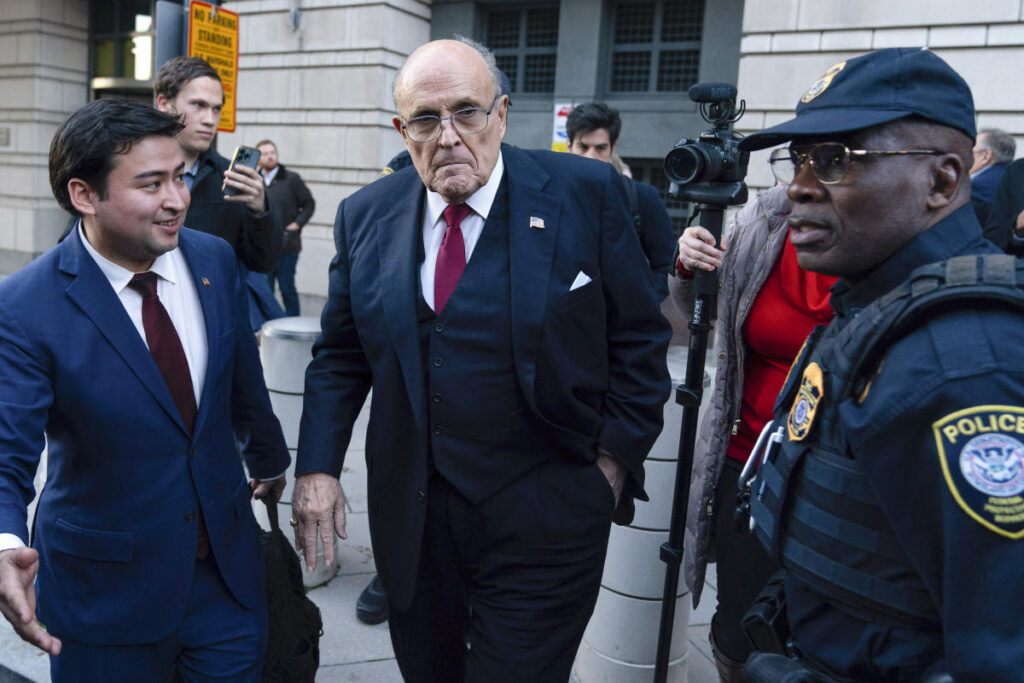Rudy Giuliani, the former mayor of New York City and notable ally of Donald Trump, is set to appear in a Manhattan federal courtroom to explain why he has not surrendered his assets as part of a $148 million defamation judgment. U.S. District Judge Lewis Liman summoned Giuliani after representatives of Ruby Freeman and her daughter, Wandrea “Shaye” Moss—who were awarded the massive judgment—found his Manhattan apartment nearly emptied during a recent visit. This incident led the judge to require Giuliani’s presence in court, which was initially meant to be a phone conference. The defamation suit stems from Giuliani’s false accusations against Freeman and Moss, linking them to election fraud during the controversial 2020 presidential election.
Judge Liman had established a deadline for Giuliani to turn over several significant possessions, including his $5 million Upper East Side apartment, a luxury 1980 Mercedes that was formerly owned by actress Lauren Bacall, signed memorabilia from sports legends, and various high-end watches. The urgency of the situation escalated when it was revealed that Giuliani’s apartment had been largely cleared out about four weeks before the court visit, which raised concerns about whether he was attempting to evade the court’s order. An attorney representing the Georgia election workers communicated to the judge that they were informed much of the valuable content had been relocated to storage, prompting the judge to act decisively.
Giuliani’s legal team has made unsuccessful attempts to delay the hearing or continue the proceedings via phone, arguing that they shouldn’t be compelled to surrender his assets while an appeal of the judgment is still pending. However, Judge Liman rejected these motions and insisted on the necessity of Giuliani’s appearance in court. The former mayor’s representatives have not responded to queries regarding the situation as of the latest reports. This ongoing legal conflict adds to Giuliani’s already tarnished public image, as he remains embroiled in controversies stemming from his role in supporting Trump’s baseless claims of election fraud.
The defamation case against Giuliani arose after he publicly accused Freeman and Moss of various election-related improprieties, allegations that fueled a climate of hostility towards the two women. Following Giuliani’s inflammatory rhetoric, both Freeman and Moss reported receiving death threats, significantly impacting their lives. The accusations made by Giuliani have not only led to a judicial ruling against him but have also served to highlight the broader implications of spreading misinformation during a tense electoral period. The court’s decision mandates a significant financial penalty for Giuliani, emphasizing that defamation claims, especially those that incite fear and threats of violence, must be taken seriously.
As the hearing approaches, Giuliani’s spokesperson has dismissed the legal pursuits taken by the election workers as intimidation, suggesting that they are a form of legal bullying intended to impoverish the former mayor. The spokesperson criticized opposing counsel for their approach, framing the situation as a targeted effort to marginalize Giuliani. This defensive stance reflects the broader dialogue about accountability in the face of spreading false narratives, especially by influential public figures. While Giuliani presents his side as a victim of legal pressure, the judicial system interprets the facts of the case through the lens of the significant damages inflicted on Freeman and Moss.
Through this ongoing legal saga, the repercussions of Giuliani’s actions will likely resonate beyond just the courtroom. The case illustrates the drastic consequences that can arise from public discourse intertwined with misinformation, particularly in a political context. As Giuliani prepares for his court appearance, the outcome may not only determine his financial future but also serve as a potent reminder of the legal and social responsibility public figures hold when making claims that can jeopardize the safety and reputation of individuals.

